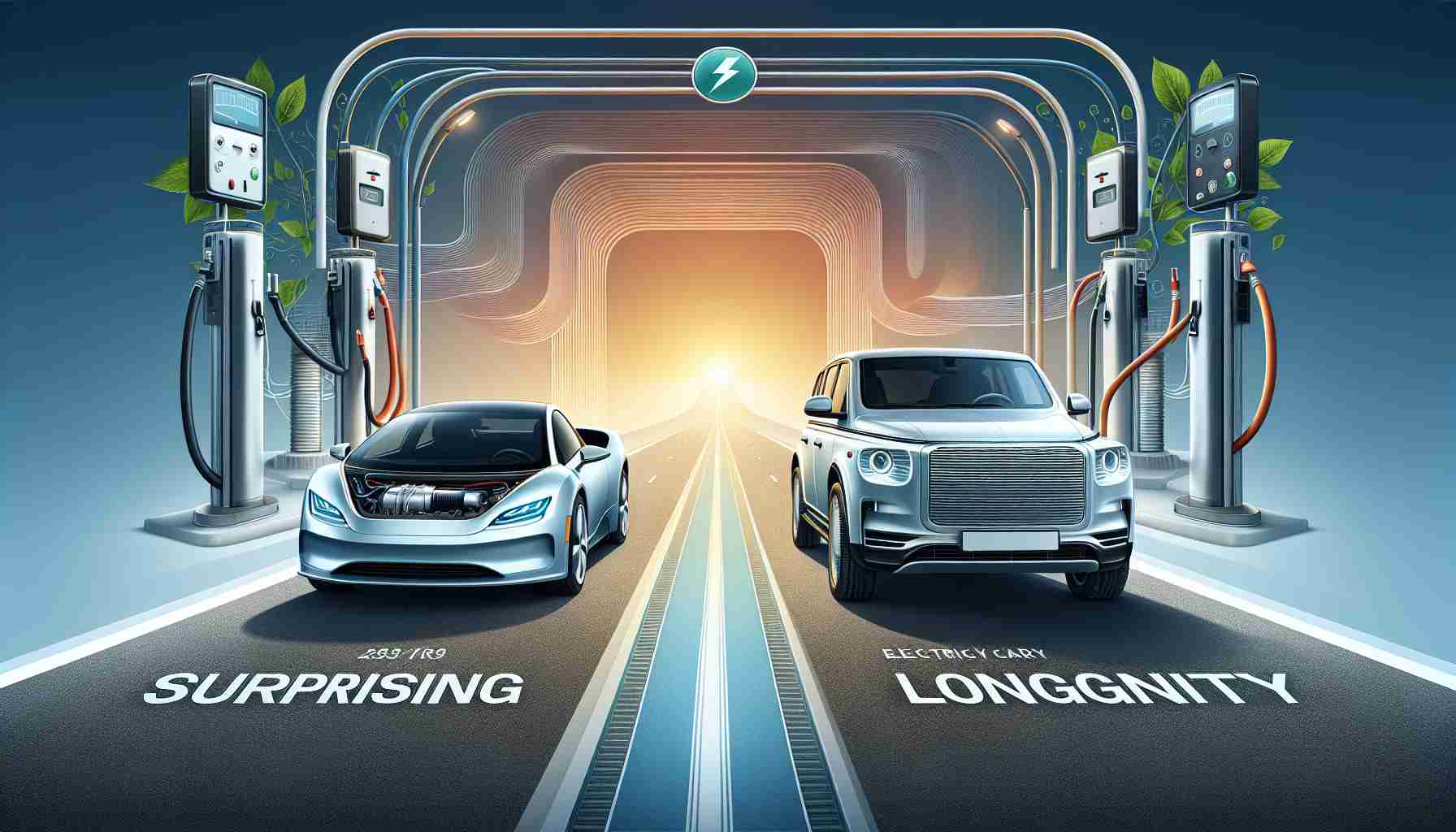Electric vehicles (EVs) are proving to be as durable as traditional petrol and diesel cars, according to a groundbreaking study. This research reveals that battery-powered cars boast an impressive lifespan, challenging previous assumptions about their longevity.
The comprehensive study, published by a team of international researchers in the renowned journal Nature Energy, reveals that electric vehicles are expected to last about 18.4 years, slightly trailing the 18.7 years lifespan of petrol vehicles and surpassing the 16.8 years typical for diesel ones. This conclusion stems from an extensive analysis of 300 million records from mandatory roadworthiness tests known as MOTs.
Researchers attribute the enhanced reliability of electric cars to their simpler mechanics, consisting of far fewer moving parts compared to their petrol and diesel counterparts. The study indicates that Tesla vehicles lead the pack in terms of durability among battery cars.
Moreover, the research highlights a significant trend: as technology evolves, all new cars are becoming more reliable, with electric vehicles showing the most substantial improvements. As automotive manufacturers refine their electric models, the emissions from these vehicles will decrease over time, particularly as the electricity powering them becomes increasingly derived from renewable sources.
As electric car sales soar in the UK, particularly with a future ban on internal combustion engine sales looming in 2035, this research reinforces the environmental advantages of EVs while shifting perceptions regarding their cost and longevity.
The Broader Impact of Electric Vehicle Longevity
The findings on electric vehicle (EV) durability carry profound implications for societal transition towards sustainable transportation. As consumer confidence in EV longevity increases, the shift from traditional petrol and diesel vehicles may accelerate, impacting cultural norms around car ownership. In urban areas, where environmental consciousness is growing, the adoption of EVs could signal a new era in personal mobility, intertwining technological advancement with a commitment to climate action.
From an economic perspective, a robust EV market could bolster job creation in the renewable energy sector. As the world moves toward cleaner energy sources, investments in infrastructure—like charging stations and battery recycling facilities—will rise. This investment not only fuels local economies but also lays a foundation for a global shift towards sustainable goods production and consumption.
Moreover, the research underscores a crucial transition in environmental policy. As EV technology matures and integration with renewable energy grids improves, emissions associated with electric vehicles are likely to decrease dramatically. This could catalyze stricter regulations on fossil fuel-powered vehicles globally, emphasizing the urgency of an accelerated response to climate change.
Looking ahead, the growing dependence on technological innovation within the automotive industry suggests an increase in research and development of next-generation batteries and renewable energy solutions. This trend not only ensures the viability of electric vehicles but also paves the way for broader societal shifts towards a sustainable future, emphasizing the need for ongoing dialogue and investment in green technologies.
The Surprising Lifespan of Electric Vehicles: A Game Changer for Sustainability
Electric vehicles (EVs) are rapidly changing the landscape of automotive reliability and sustainability, as illuminated by a recent study published in the esteemed journal Nature Energy. This research provides new insights into the durability of EVs, revealing that they can match and even exceed traditional petrol and diesel cars in lifespan.
Key Findings from the Study
According to the groundbreaking research conducted by an international team, electric vehicles boast an expected lifespan of approximately 18.4 years. This slightly trails the 18.7 years typical for petrol vehicles, but notably exceeds the 16.8 years associated with diesel ones. These findings are based on an analysis of 300 million records from roadworthiness tests, or MOTs, which measure the longevity and safety of vehicles on the road.
Factors Contributing to EV Longevity
1. Simpler Mechanics: One of the primary reasons for the enhanced durability of electric cars is their simpler design. EVs have considerably fewer moving parts compared to internal combustion engine vehicles, leading to reduced wear and tear over time.
2. Tesla’s Leading Position: Among electric car manufacturers, Tesla vehicles have emerged as the front-runners in terms of durability, setting a benchmark for other brands to strive towards.
3. Technological Progress: The study also highlights that as automotive technology continues to evolve, the reliability of all vehicles is improving. Electric vehicles, in particular, have shown marked enhancements in durability, reinforcing their viability as a long-term investment.
The Future of Electric Vehicles
With the UK imposing a ban on the sale of internal combustion engine vehicles by 2035, the study’s findings are particularly poignant. The growing sales of electric vehicles are not only related to their longevity but also their environmental benefits. As EV sales soar, emissions are expected to decrease further, especially as the electricity that powers these vehicles gradually shifts towards renewable sources.
Insights on EV Reliability and Sustainability
1. Environmental Benefits: The shift towards electric vehicles represents a significant stride in reducing carbon footprints. As more drivers transition to EVs, the overall environmental impact is expected to improve.
2. Cost and Longevity Perception: The research challenges previous assumptions about the cost of ownership and longevity of electric vehicles, inviting more consumers to consider EVs as a viable long-term alternative.
3. Market Analysis: The increasing consumer confidence in the durability of electric vehicles aligns with global trends toward sustainability and green technologies, making EVs a focal point in the automotive industry.
Pros and Cons of Electric Vehicles
Pros:
– Lower operating costs due to fewer moving parts.
– Environmental sustainability through reduced emissions.
– Government incentives for purchasing EVs.
Cons:
– Initial purchase price can be higher, though decreasing.
– Charging infrastructure may still be limited in certain areas.
– Battery lifespan and replacement costs, although diminishing over time.
For those interested in further exploring the future of electric vehicles and their impact, visit energy.gov for more insights and information on renewable energy sources and EV technology.
As the automotive industry continues to evolve, electric vehicles are set to play a pivotal role in sustainability efforts, challenging the notion that traditional vehicles are more reliable. The evolution of EV technology will undoubtedly shape our transportation landscape for years to come.


















